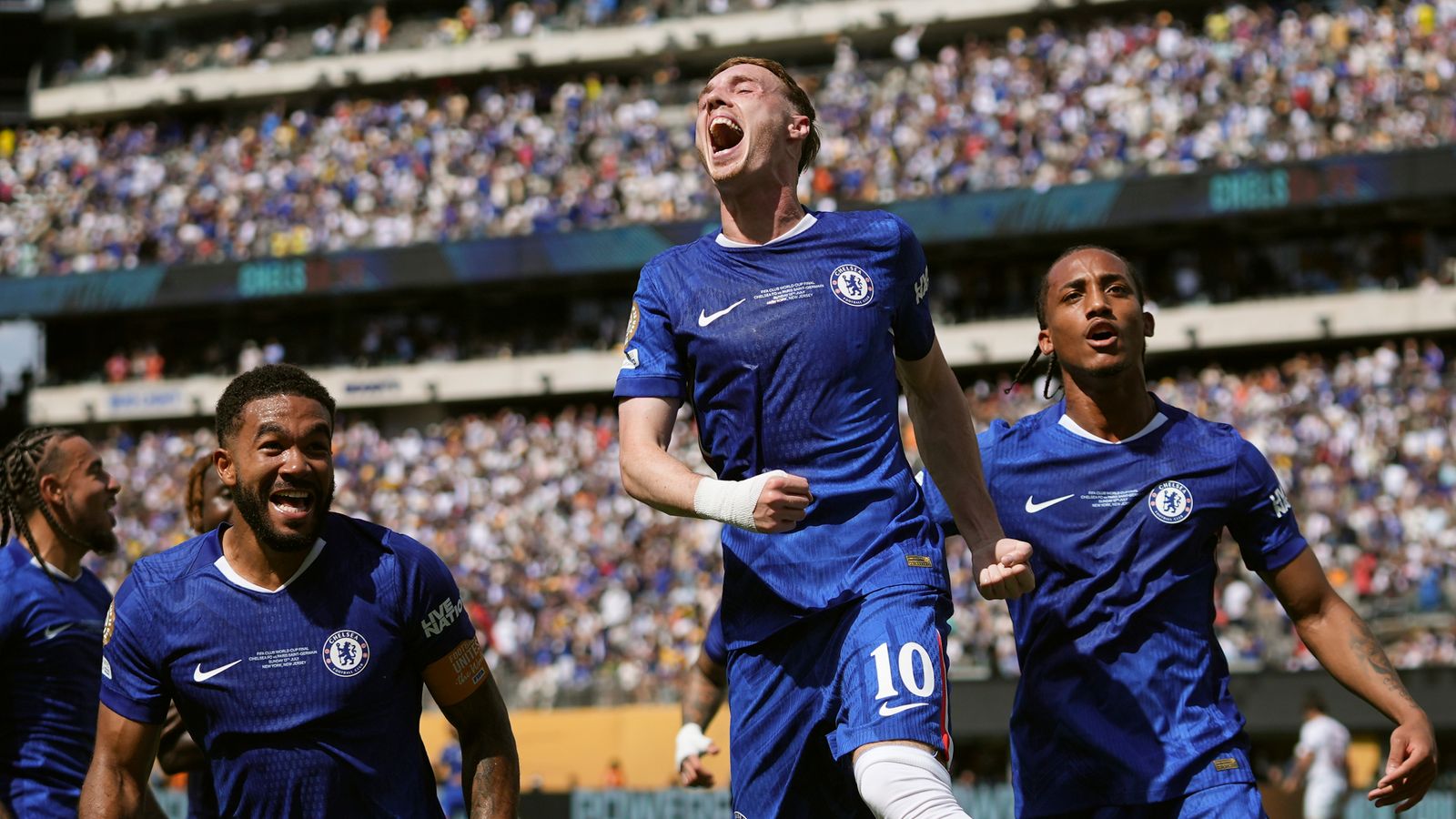
Chelsea’s 3–0 win over Paris Saint‑Germain in the Club World Cup final in mid-July wasn’t an accident — it was a tactical statement.
With Cole Palmer scoring twice and assisting João Pedro before half-time, Enzo Maresca’s side seized the game early and never let go, shocking the favourites on a night when precision and intensity mattered more than reputation.
According to an analysis by the Coaches Voices, Chelsea’s plan mixed aggression without the ball and clarity with it. Out of possession, they often dropped into a 4‑4‑2, went man-to-man, and weren’t afraid for a centre-back to step out if Ousmane Dembélé dropped between the lines.
Pedro Neto diligently tracked Achraf Hakimi’s surges, which pulled him into full-back territory and forced Marc Cucurella to tuck extremely narrow; meanwhile, Enzo Fernández and João Pedro narrowed the first line to restrict PSG’s central access and rotations.
There’s a lesson here about timing and temperament. Football is a game of reading flows—when to push, when to wait, when to pounce.
And away from the pitch, fans chase that same pulse in different ways, from post‑match analysis to trying out casual games like Slot Gacor—as the thrill often lies in the judgment calls, not just the outcome.
“The idea was to go man-to-man,” said Maresca. “PSG are so good that if you give them time you are going to struggle. You have to press them very intensely. In the first 10 minutes we were able to do it.”
“In our ideal world we have to do that for 90 minutes, but we knew because of the weather it was not possible to do it for a long time,” he said, adding, “But we tried to be very aggressive and not give them time. Then on the ball we had some very good moments, we exploited the space that we planned.”
That balance—front-foot pressing within physical limits, then composure to exploit planned spaces—told the story.
Chelsea managed the “spikes” of pressure early, created turnovers high, and then used clean connections to punish PSG.
The result was two ruthless Palmer finishes and a cleverly crafted third for João Pedro that reinforced how decisive Chelsea’s first-half structure was.
“We are disappointed, it’s not easy, but that’s sport at the highest level,” said PSG boss Luis Enrique. “Chelsea played very well and deserved to win. We accept that.”
What mattered at this grand final was positional details. Chelsea’s willingness to let a centre-back jump with Dembélé disrupted PSG’s right‑side triangles, while Neto’s defensive discipline limited Hakimi’s overlaps; this trade-off reduced Chelsea’s own counter threats but paid off by narrowing PSG’s best routes into the box.
With Fernández and João Pedro pinching the first line, PSG’s central circulation repeatedly hit traffic, forcing wider, lower‑value entries that Chelsea handled with numbers.
In a final defined by control under pressure, Chelsea read the game better while also running harder.
The blueprint is clear: know when to commit, when to conserve, and how to turn brief moments of superiority into lasting advantages on the scoreboard. That’s what wins trophies.
